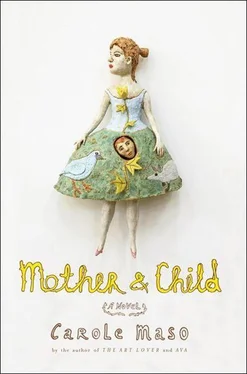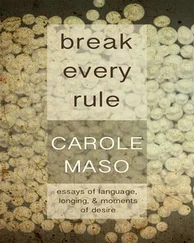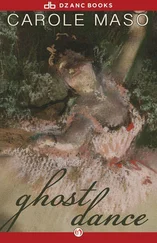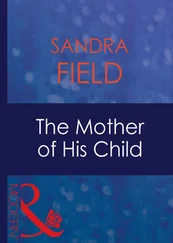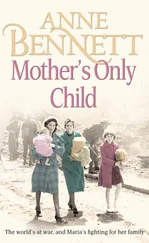Isolated that way and standing against a blackboard, the mother took away her poker and eraser, her pink slips, her dunce caps, her reason to be. Woe to the teacher who abuses her station. It is unpleasant, the mother thought, but sometimes necessary, to watch an entire teacher go up in flames. For a moment the teacher stepped behind Miss Archway, the headmistress, her firewall, who had come in to help, but alas, to no avail.
NO ONE KNEW why the South American doctor had appeared in the Valley and was sitting on a twirling seat at the diner next to the mother and child unless it was to deliver his soliloquy, which he now did. He was one of those Doctors without Borders doctors, and he did not know what he would do now that he had seen what he had seen in the borderless world.
The Doctor without Borders on the swivel seat in the diner seemed to be spinning faster and faster when the mother finally looked up from her teacup and said, look, slow down. He seemed more hyperactive child than doctor, and she imagined after all he had been through that he was probably going mad. Clearly he had spent a long time in the various denizens of disease throughout the world. He could not look at this child without seeing the other children, the ones with hallucinations and deliriums and fevers and tremors, wide fluctuations of pulse and blood pressure — everywhere he saw their seizures, their delusions: their fear of water and their fear of air. The ones said to be possessed by demons, the ones bitten by bats. She heard a kind of falsetto coming from somewhere deep within the tin of the diner and then a whooshing sound.
The Age of Funnels arrives in many guises. The anti-cyclones have come! he shrieks. Already whole villages have been swept away. One hundred thousand people at a clip! And with that the doctor spins away.
Demented, spacey, he calls out from what was once Burma, Can-You-Still-Hear-Me? His swivel seat still madly spinning next to the mother and the child who is stirring her chocolate milk. Yes-We-Can , the child calls through a paper megaphone.
CASPER THE BABY, along with Igor the Giant, appeared one evening at the Spiegelpalais. Casper was sleeping and Igor was dispensing leaflets and singing a gentle song. Igor’s heart, the leaflet said, weighed a full pound and a third. When he saw the child, he showed her the baby and then gently cooed. Why is it giants are always gentle? the child wondered, but The Guinness Book of World Records had nothing to say about the gentleness of Igor. They cared only about his height, and his girth, and the size of his hands and his feet and his head. The mother, who kept a record of such things, said she prized Gentleness above all.
OKAY BUNNY BOY, the mother says, making little strangling motions as he runs triumphantly in. Do not ask what he carries in his mouth. It is always something different. PUT THAT DOWN, she yells, or I’ll throttle you.
THE WARRIOR CHILDREN from suburbia’s darkest heart were coming to the country day school to display their expertise in Tae Kwon Do, an ancient art of war.
The children looked a little sickly, the mother thought. They seemed to move through a chemical haze of performance-enhancing drugs and pesticides that were the minimum requirements for life in their excellent, leafy, perfectly serene wonder world.
There is something wrong with children from America’s very own heart of darkness coming to the Valley in busloads and putting on shows, the mother thought. There is something wrong with children saying Yes Master, No Master on a stage. Prowess in combat is not something one should display. Public censure should rise up at these sorts of shows.
A Black Belt means that you have become impervious to darkness and fear. In the upside-down and backward world where they all live now, the warrior children who excel at unarmed destruction styles from three rival Korean villages are raised up on the shoulders of the others and praised. It should be remembered that Tae means to destroy with the foot, Kwon means to strike or smack with the hand, and Do means an art or a way of life. Tae Kwon Do: the art of destroying with the foot or the fist.
Where, she wonders, have all the Scholar-Fathers gone? And the Scholar-Artists? As always she has an insatiable hunger for the Scholar-Artists. Even one Scholar-Artist, amidst all these fists, in a time like this, would go a long way. There is something obscene, the mother thinks, about a display of this sort of prowess, especially when the country is at war.
At the end of the Tae Kwon Do show, the mother felt the need to make a small speech. She made her way to the stage. Couldn’t these children find something better to do with their time? she wondered. It made the child remember the other time the mother had felt compelled to stand up. It was in church after the singing of the Battle Hymn of the Republic at the end of the Mass on the Fourth of July. Didn’t they know there was a war being fought at that very moment that they were singing their fool heads off?
When the mother spoke like this, people often turned away. She had a very special way of saying: shame on your heads. The mother spoke for something she called pacifism, and after that, the other people looked at her like someone they could no longer understand. They shunned her. She was not the person they thought they knew. She had made hot cross buns, and in winter she made soup for the poor. She sang at the top of her lungs. Regardless of what they thought, she continued every Sunday to sit in the front pew with the child, and the war song was never sung again, probably because they did not want to see the mother stand up anymore.
When they were done, the corps of child warriors returned to their shiny wonder world carrying the mark the mother had made on their heads, and although it could not be seen, it was there, and they would have to bear it for a long time. It was not so bad because with all the technologies — the electronic whirring and beeping and instant messaging they were occupied with on the ride home — the children did not have to notice it so much.
A while back, when the Girl Scouts had come to town in a bus, the child had learned how to send smoke signals. Inefficient as it was, so far from the suburban warriors’ ways of doing things as it was, the child loved this way of sending messages. Falling asleep that night, the child was glad not to have the mark of the mother on her head. The wind blew and the fire burned and the smoke rose high up over the Valley. Are you there? was the message she sent. Would you like to be friends? And she waited for a response.
There is a deer wading in the pond, she wrote in smoke. I enjoy beading, do you?
Like this, the child is not so lonely.
At night in dreams, the suburban warriors return, texting and emailing as they come. The show begins. Gracefully, with upgraded combat methods, they toss enriched uranium and plutonium atoms back and forth to one another in a kind of slow motion.
There is much applause.

SEE HOW THE flies begin to gather around the still-mobile Bunny Boy, detecting the sweetness of his decline, eventual expiration, and demise. But this is still some years off, the mother assures the child, and she scoops up the cat, who had wandered onto the Aging Stage. For now Bunny Boy’s end has not arrived, it is just something the mother sees before her like a photograph; she does not know why.
The mother hated photographs, especially the class photos the child brought home from school. The child had heard the mother say that a little school picture to her was like a little death. The French philosopher had lectured about the intense immobility of the photograph, and for once, the mother’s protestations about the child’s school pictures had fallen on sympathetic, albeit dead French philosopher ears.
Читать дальше
